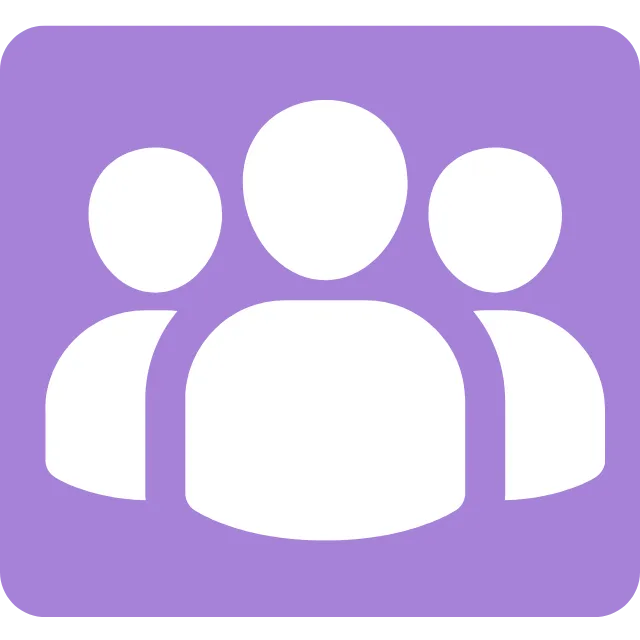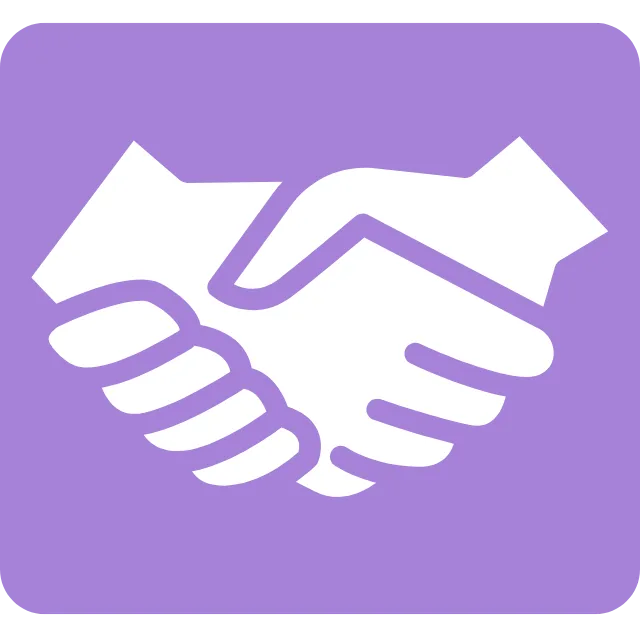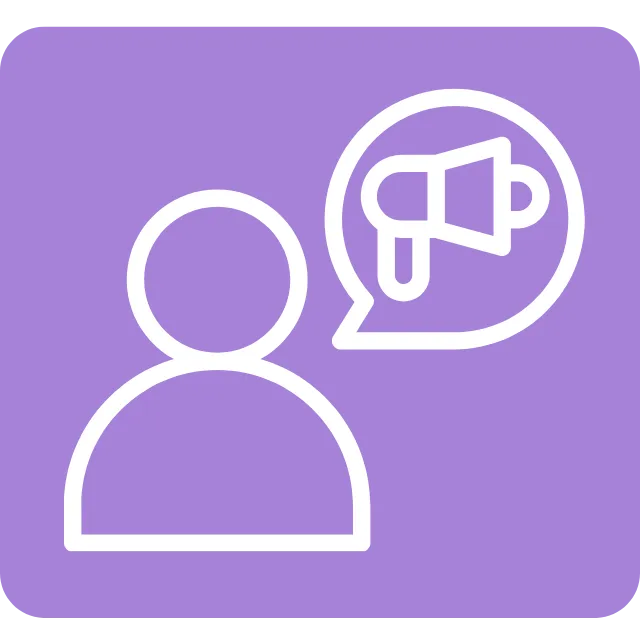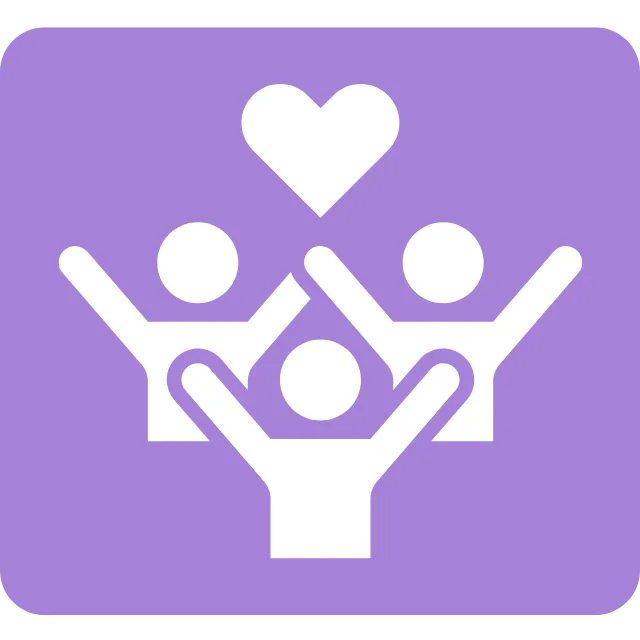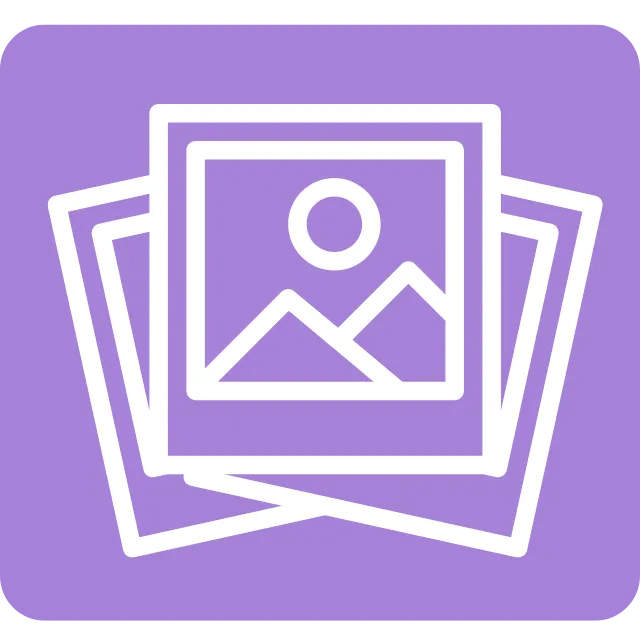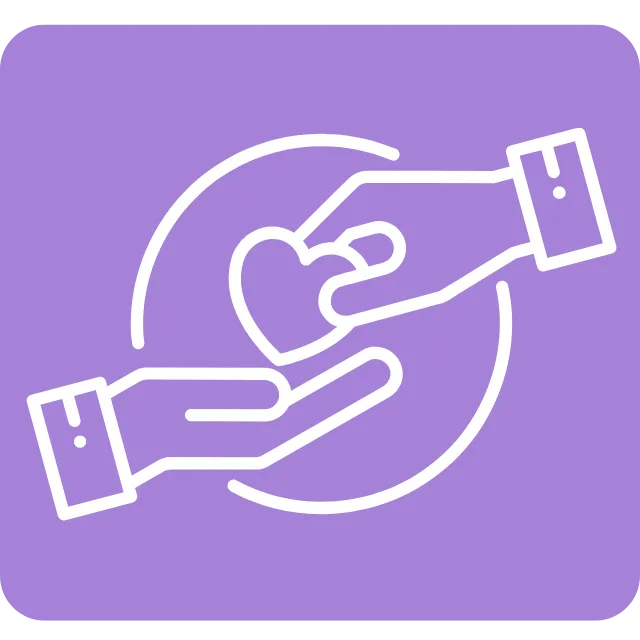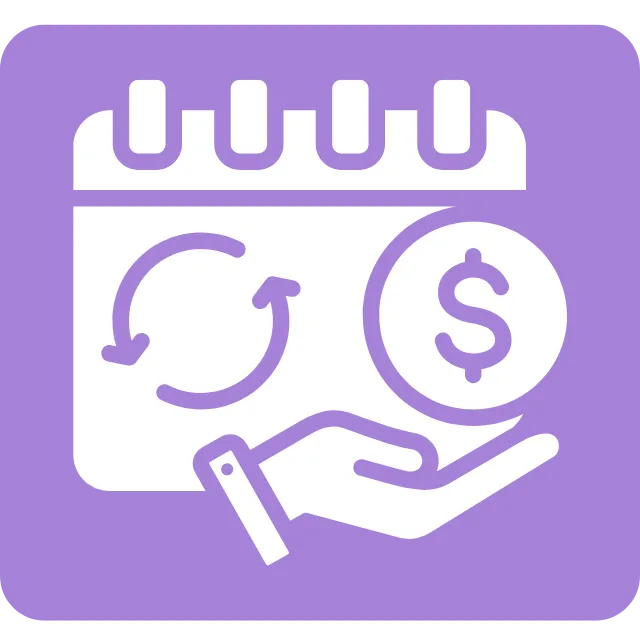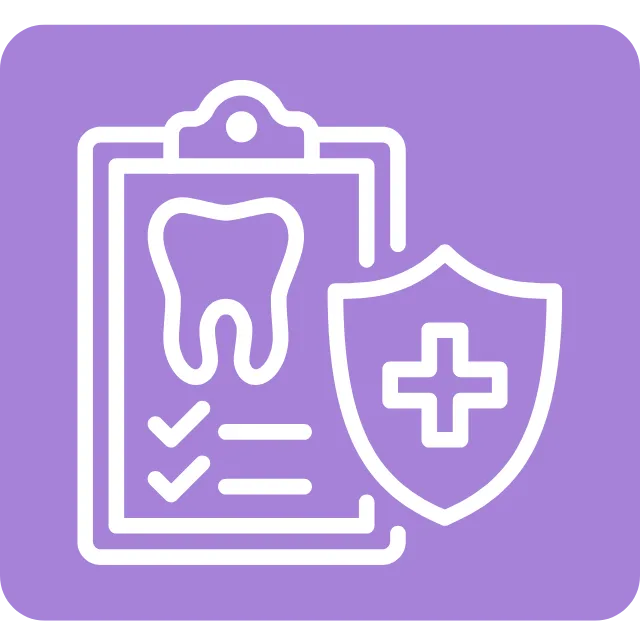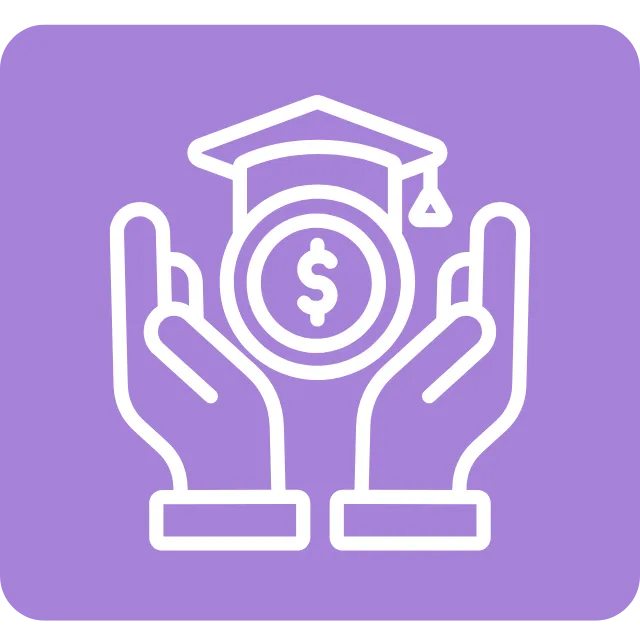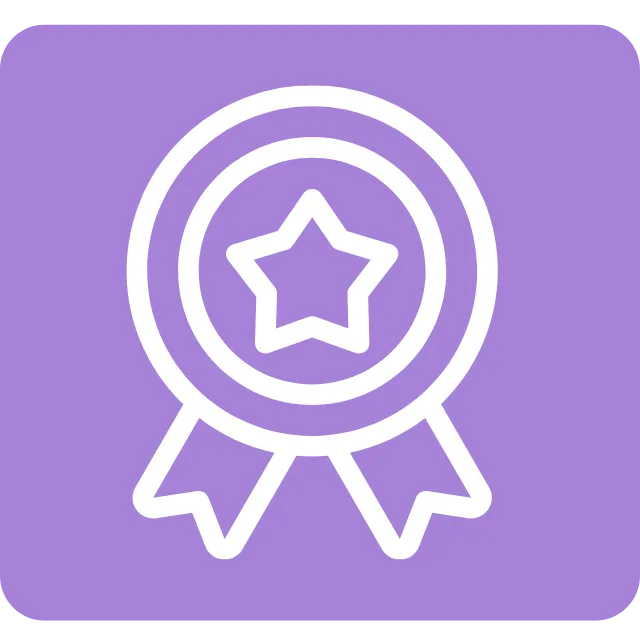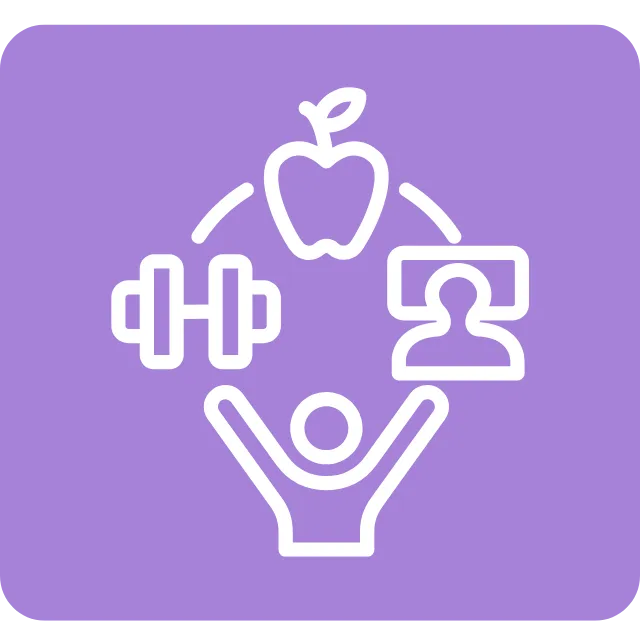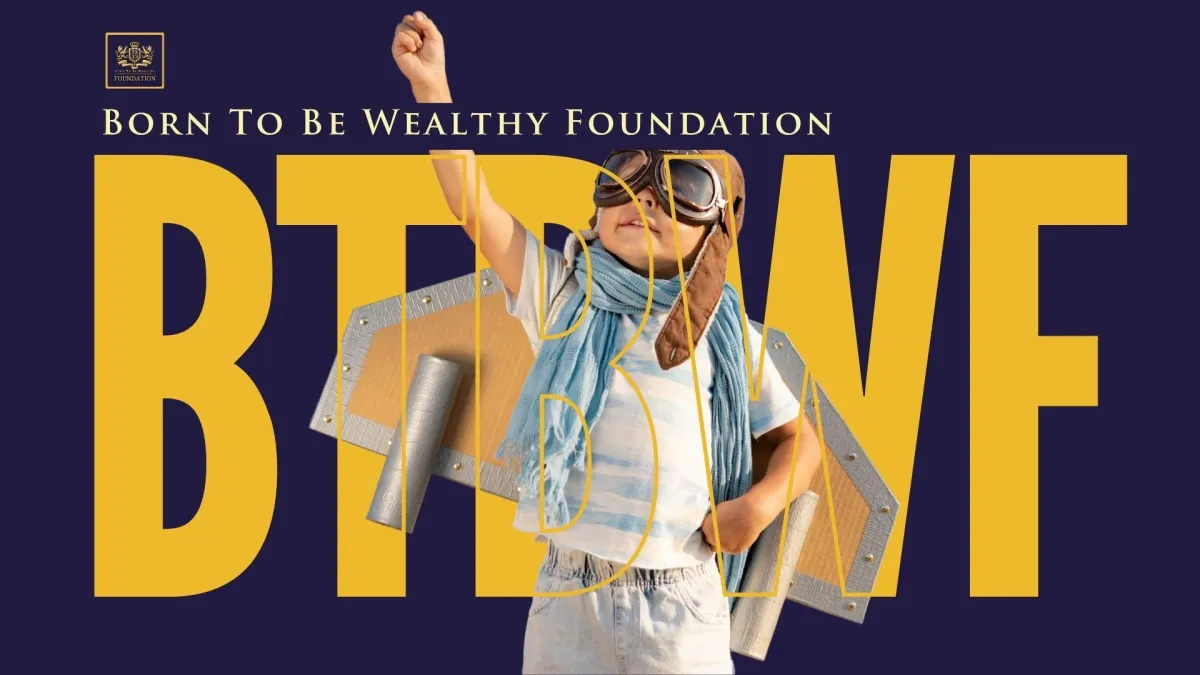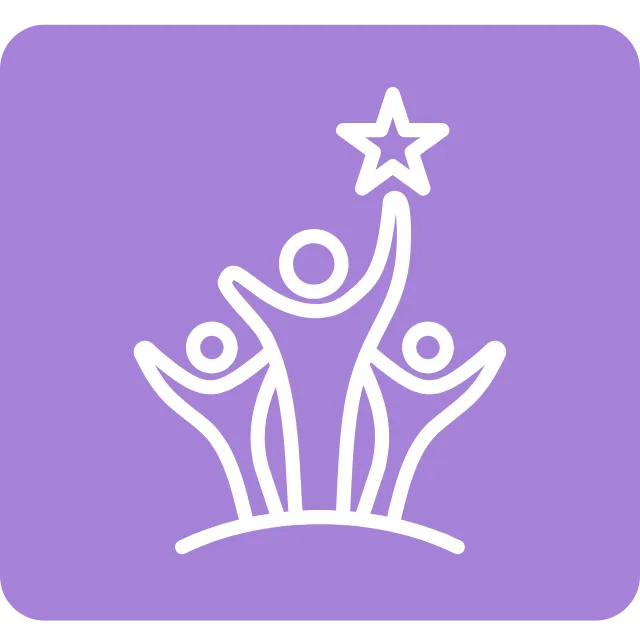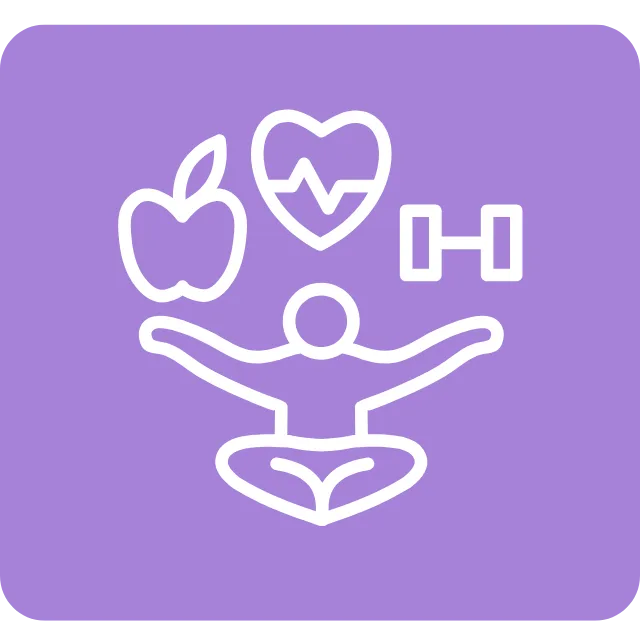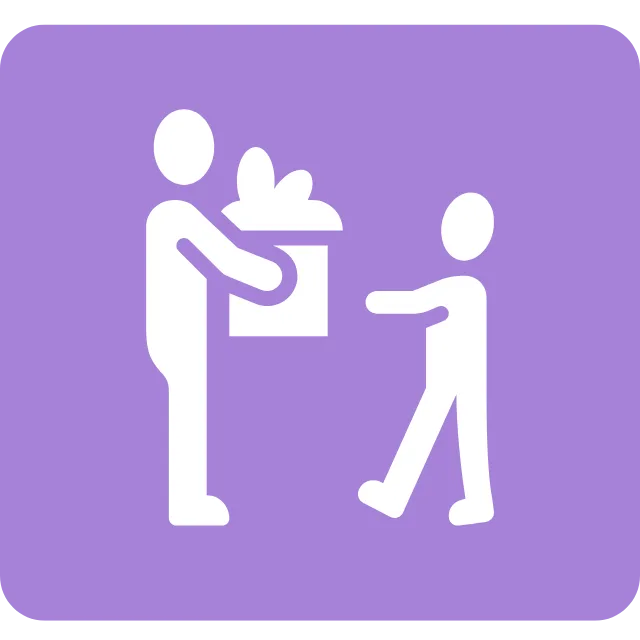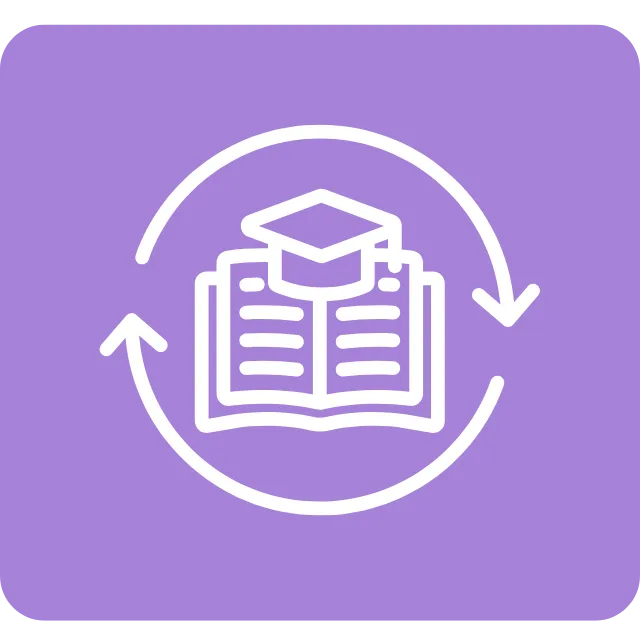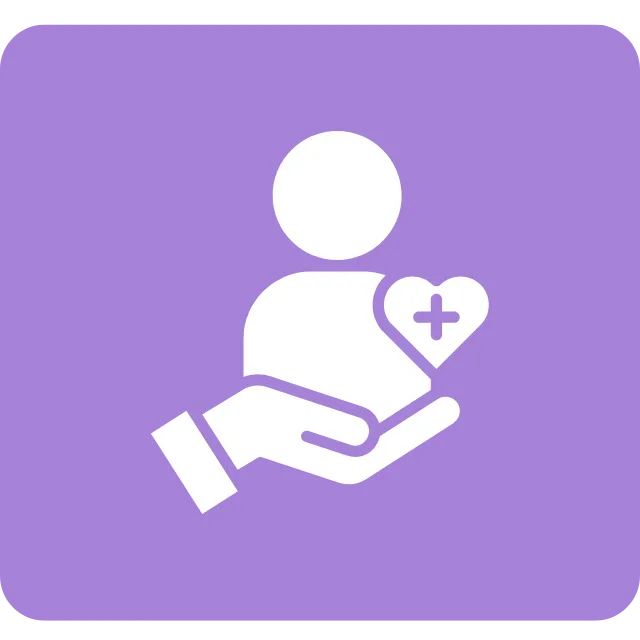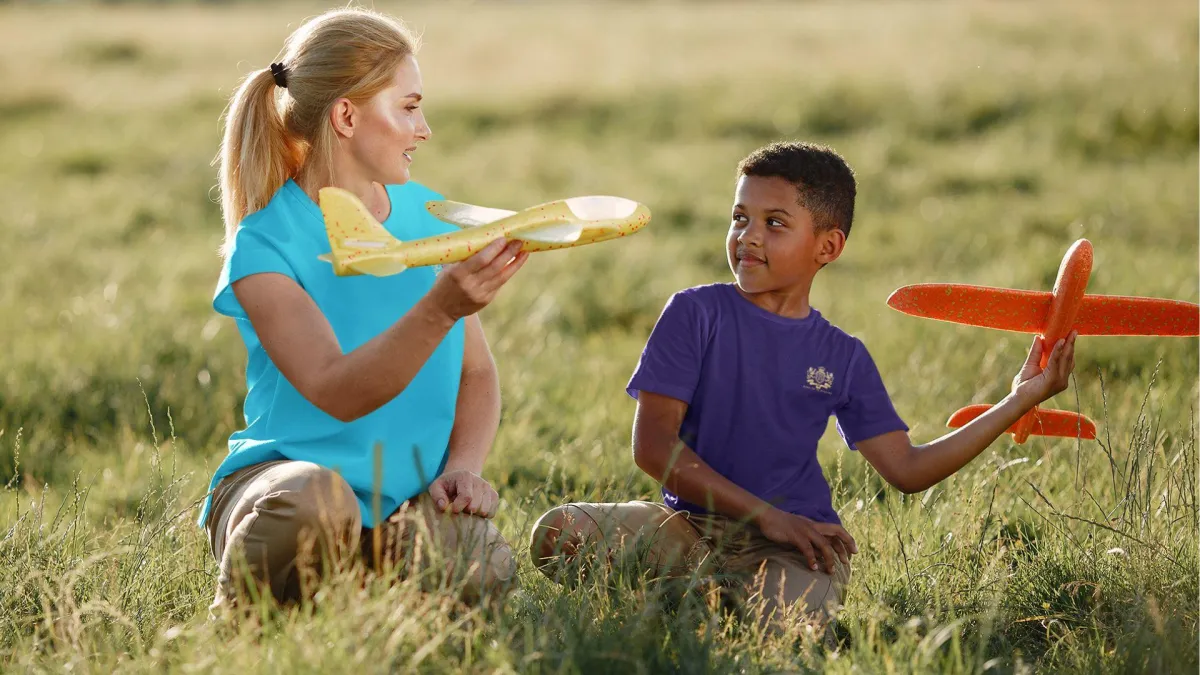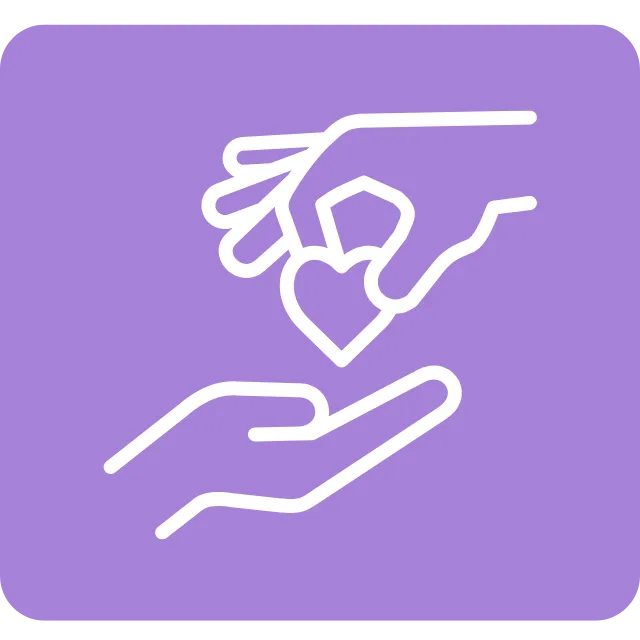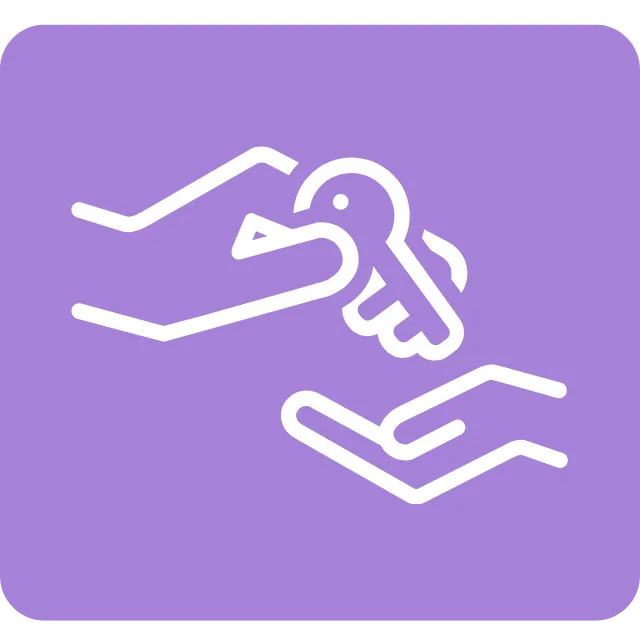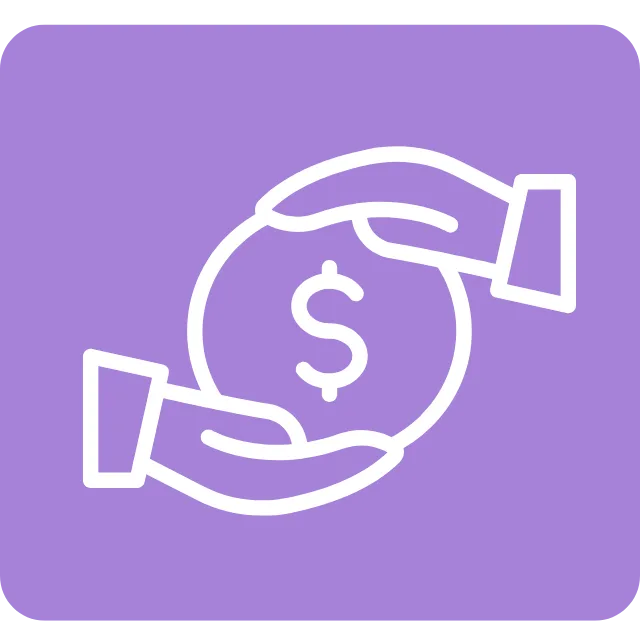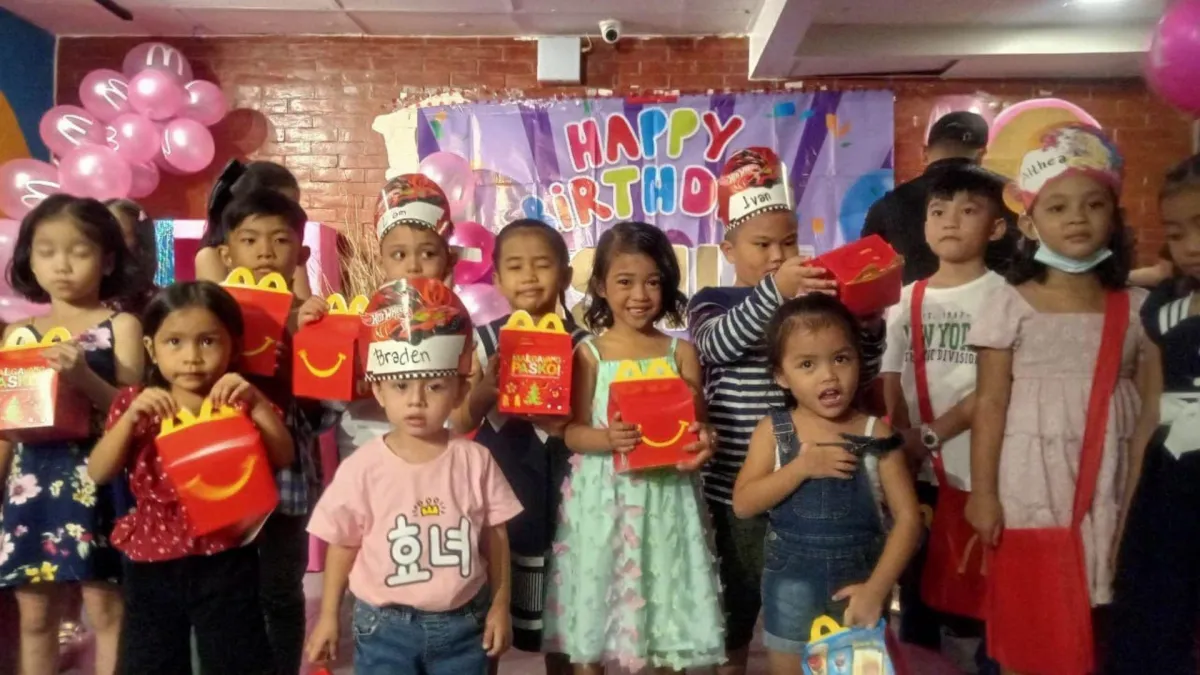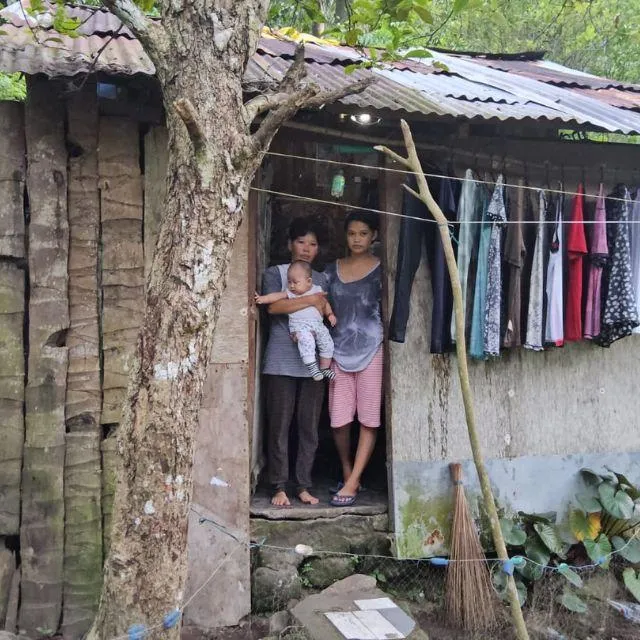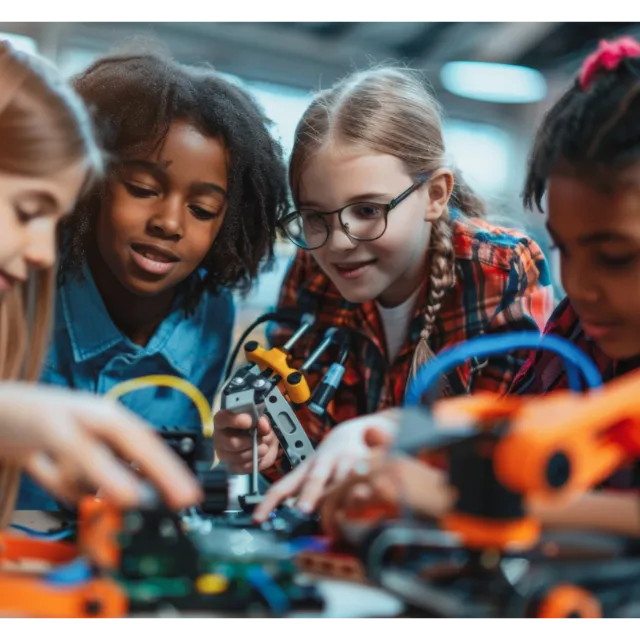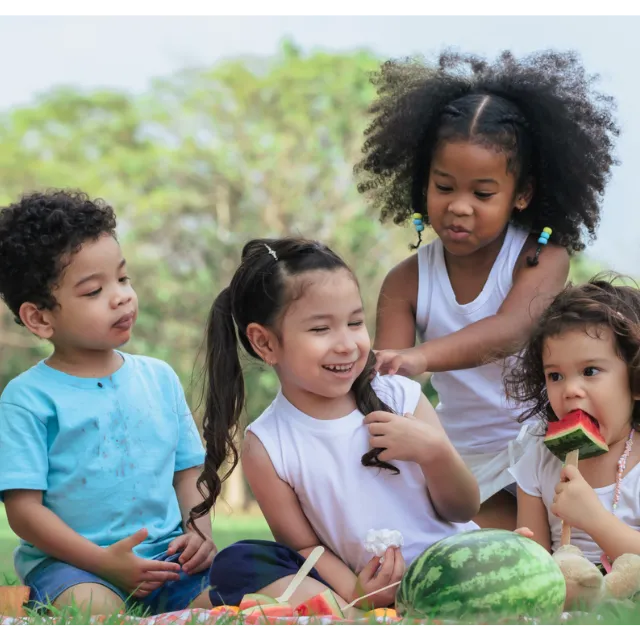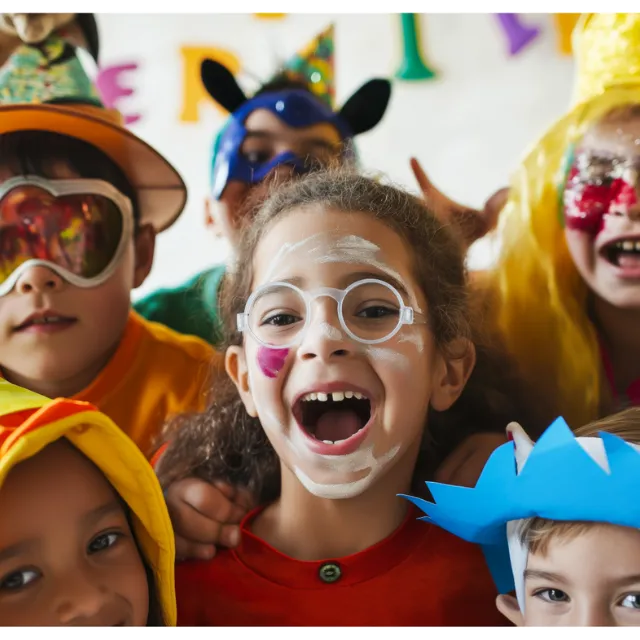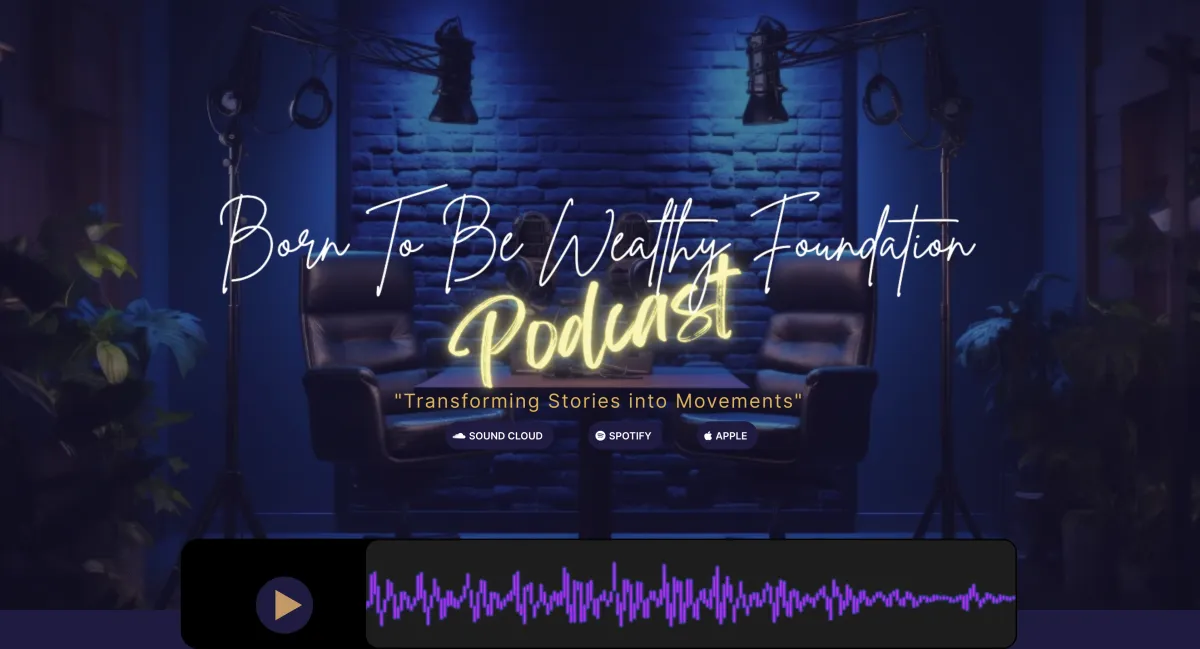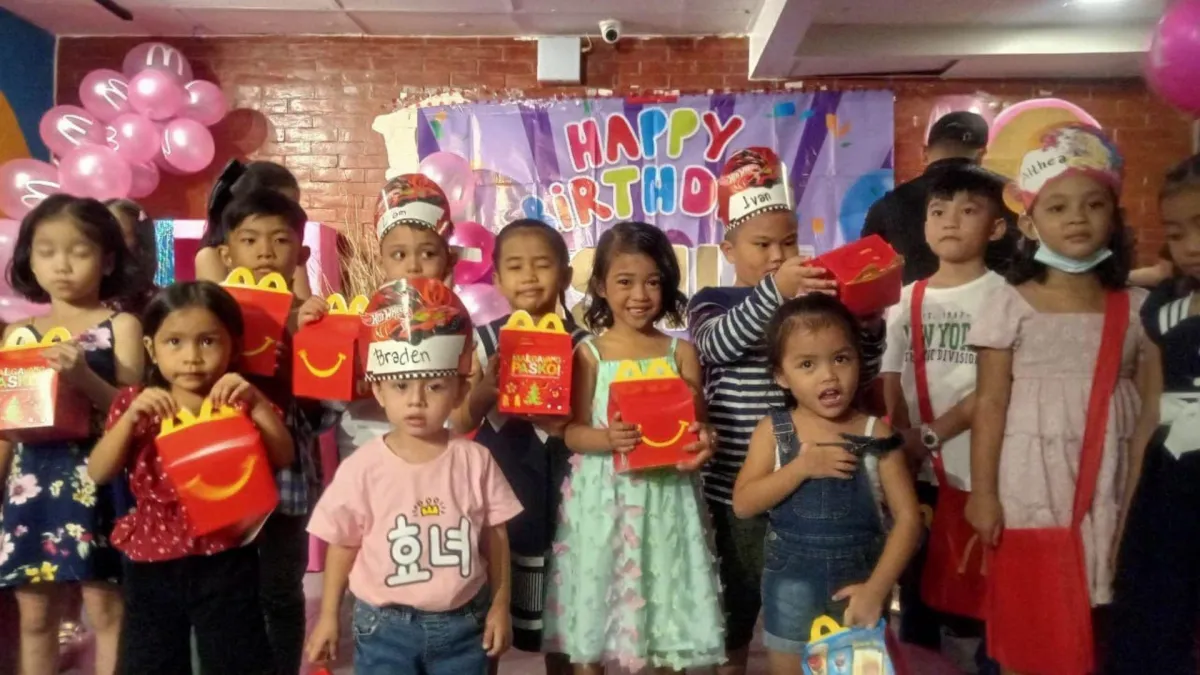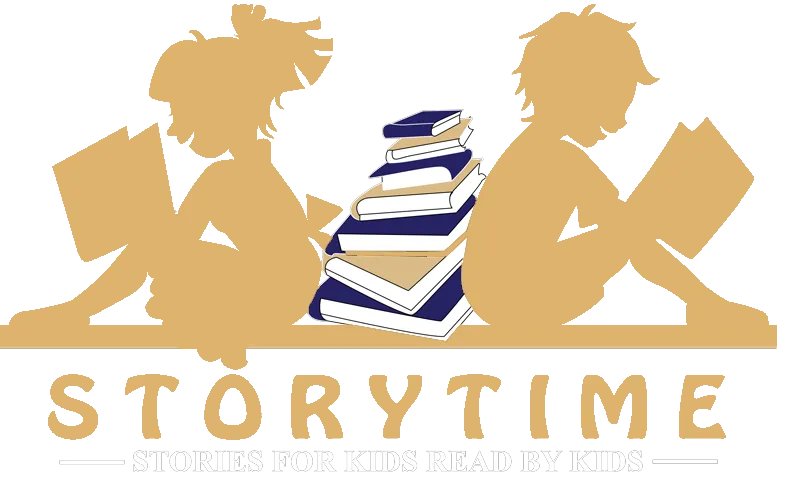
Addressing the Needs of Children with Disabilities

Addressing the Needs of Children with Disabilities
Episode - 47
Creating Inclusive Opportunities For Children With Disabilities Is Not Just About Meeting Their Needs
It’s about recognizing their potential and ensuring they can thrive. By addressing systemic barriers and fostering supportive environments, the Born To Be Wealthy Foundation is building a world where every child, regardless of ability, has the opportunity to succeed.
Today, we’re focusing on an issue that affects millions of children worldwide: addressing the needs of children with disabilities. Despite the progress made in many areas, children with disabilities often face systemic barriers to education, healthcare, and social participation. These barriers limit their opportunities and hinder their potential.
Born To Be Wealthy Foundation, we are committed to fostering inclusivity through programs that address the unique needs of children with disabilities. Our initiatives, such as the Inclusive Learning Program and the Accessibility for All Campaign, are designed to create environments where every child can thrive.
In this episode, we will discuss the importance of inclusivity, the challenges faced by children with disabilities, and the solutions that are creating a more equitable future.
Episode - 47
Creating Inclusive Opportunities For Children With Disabilities Is Not Just About Meeting Their Needs
It’s about recognizing their potential and ensuring they can thrive. By addressing systemic barriers and fostering supportive environments, the Born To Be Wealthy Foundation is building a world where every child, regardless of ability, has the opportunity to succeed.
Today, we’re focusing on an issue that affects millions of children worldwide: addressing the needs of children with disabilities. Despite the progress made in many areas, children with disabilities often face systemic barriers to education, healthcare, and social participation. These barriers limit their opportunities and hinder their potential.
Born To Be Wealthy Foundation, we are committed to fostering inclusivity through programs that address the unique needs of children with disabilities. Our initiatives, such as the Inclusive Learning Program and the Accessibility for All Campaign, are designed to create environments where every child can thrive.
In this episode, we will discuss the importance of inclusivity, the challenges faced by children with disabilities, and the solutions that are creating a more equitable future.

Listen to real conversations, and real topics that spark personal growth.

Listen to real conversations, and real topics that spark personal growth.
The Right to Equality
Why Inclusivity Matters?
Basic Human Right: Every child, regardless of ability, deserves equal access to education, healthcare, and social opportunities. Global Commitments: The United Nations’ Sustainable Development Goals and the Convention on the Rights of Persons with Disabilities emphasize the importance of inclusivity.
Individual Growth: Inclusive environments allow children with disabilities to build confidence, skills, and independence. Community Enrichment: Diversity enriches communities, fostering empathy, creativity, and collaboration.
Social Stigma: Inclusivity challenges stereotypes and reduces discrimination. Systemic Inequities: Inclusive policies address long-standing inequalities in access to resources.
The Right to Equality
Why Inclusivity Matters?
Basic Human Right: Every child, regardless of ability, deserves equal access to education, healthcare, and social opportunities. Global Commitments: The United Nations’ Sustainable Development Goals and the Convention on the Rights of Persons with Disabilities emphasize the importance of inclusivity.
Individual Growth: Inclusive environments allow children with disabilities to build confidence, skills, and independence. Community Enrichment: Diversity enriches communities, fostering empathy, creativity, and collaboration.
Social Stigma: Inclusivity challenges stereotypes and reduces discrimination. Systemic Inequities: Inclusive policies address long-standing inequalities in access to resources.
Company Introductions
Get to know about Us Against Us
Us Against Us is more than just a podcast—it’s a movement dedicated to exploring the battles we face within ourselves and the world around us. Hosted by Erica Carreno, each episode dives deep into topics like self-doubt, resilience, social justice, mental health, and personal growth.
Through heartfelt conversations with experts, thought leaders, and everyday individuals, the podcast shines a light on untold stories, offering fresh perspectives and actionable insights.
At its core, Us Against Us is about transformation. It’s about turning inner struggles into sources of strength and using personal growth as a catalyst for positive change. Whether you’re seeking inspiration, looking for tools to overcome life’s challenges, or simply craving authentic, thought-provoking discussions, Us Against Us is your guide on the journey to self-empowerment and collective progress.
Join us as we challenge norms, break barriers, and remind each other that the greatest battles lead to the most profound victories. Together, we rise.
Empower Yourself to Overcome Inner Battles
Authentic and Thought-Provoking Conversations
A Community That Inspires and Supports

Start your journey with Us Against Us—where real conversations spark personal growth.
The Born To Be Wealthy Foundation’s Commitment
The Foundation prioritizes accessibility, equity, and community involvement to support children with disabilities and their families.
The Born To Be Wealthy Foundation’s Commitment
The Foundation prioritizes accessibility, equity, and community involvement to support children with disabilities and their families.
1. Inclusive Learning Program
Provides access to quality education tailored to the needs of children with disabilities. Key Features: Adaptive classrooms with accessible furniture, technology, and learning materials. Specialized training for teachers to support diverse learning needs. Individualized Education Plans (IEPs) developed in collaboration with families.
2. Accessibility for All Campaign
Advocates for accessible infrastructure in schools, playgrounds, and public spaces. Activities Include: Installing ramps, elevators, and accessible restrooms. Creating inclusive playgrounds with sensory equipment and wheelchair-accessible features. Partnering with local governments to implement universal design standards.
3. Healthcare and Therapy Support
Provides medical care and therapeutic services to children with disabilities. Services Include: Access to physiotherapy, speech therapy, and occupational therapy. Free or subsidized assistive devices like wheelchairs, hearing aids, and communication tools. Training caregivers to support children’s health and development at home.
4. Empowerment Through Sports and Arts
Encourages participation in adaptive sports and arts programs to build confidence and community. Key Components: Adaptive sports leagues for basketball, soccer, and track events. Art and music therapy sessions tailored to individual abilities. Inclusive competitions and showcases to celebrate talents.
5. Parent and Caregiver Support Networks
Offers resources and emotional support for families of children with disabilities. Features Include: Support groups for sharing experiences and advice. Workshops on managing stress, advocating for rights, and accessing services. Online forums connecting families with similar challenges.
1. Inclusive Learning Program
Provides access to quality education tailored to the needs of children with disabilities. Key Features: Adaptive classrooms with accessible furniture, technology, and learning materials. Specialized training for teachers to support diverse learning needs. Individualized Education Plans (IEPs) developed in collaboration with families.
2. Accessibility for All Campaign
Advocates for accessible infrastructure in schools, playgrounds, and public spaces. Activities Include: Installing ramps, elevators, and accessible restrooms. Creating inclusive playgrounds with sensory equipment and wheelchair-accessible features. Partnering with local governments to implement universal design standards.
3. Healthcare and Therapy Support
Provides medical care and therapeutic services to children with disabilities. Services Include: Access to physiotherapy, speech therapy, and occupational therapy. Free or subsidized assistive devices like wheelchairs, hearing aids, and communication tools. Training caregivers to support children’s health and development at home.
4. Empowerment Through Sports and Arts
Encourages participation in adaptive sports and arts programs to build confidence and community. Key Components: Adaptive sports leagues for basketball, soccer, and track events. Art and music therapy sessions tailored to individual abilities. Inclusive competitions and showcases to celebrate talents.
5. Parent and Caregiver Support Networks
Offers resources and emotional support for families of children with disabilities. Features Include: Support groups for sharing experiences and advice. Workshops on managing stress, advocating for rights, and accessing services. Online forums connecting families with similar challenges.
Mission Statement
To create inclusive opportunities that empower children with disabilities, ensuring they are valued, supported, and able to thrive in every aspect of life.
Strategies for Enhancing Inclusivity
Engage Stakeholders. Involve children with disabilities, their families, and community members in program design and implementation. This inclusive approach ensures that programs address real needs and are accessible to everyone. By fostering collaboration, stakeholders become advocates for the program’s success, driving greater impact and community support.
Train Educators and Staff. Provide specialized training to teachers, healthcare providers, and program facilitators. Equipping them with the skills to address diverse needs ensures higher-quality support and inclusivity. Continuous professional development enhances their ability to create positive, nurturing environments that foster learning and growth.
Leverage Technology. Use assistive technologies to enhance learning, communication, and mobility. These tools empower children with disabilities to actively participate in education and daily activities, fostering independence. By integrating innovative solutions, technology bridges gaps, creating equal opportunities for all learners to thrive.
Advocate for Policy Change. Work with governments to implement inclusive policies and increase funding for disability programs. Promoting laws that protect the rights of individuals with disabilities ensures equal access to education, healthcare, and opportunities. Sustained advocacy creates systemic change, fostering a more inclusive and equitable society for all.
Mission Statement
To create inclusive opportunities that empower children with disabilities, ensuring they are valued, supported, and able to thrive in every aspect of life.
Strategies for Enhancing Inclusivity
Engage Stakeholders. Involve children with disabilities, their families, and community members in program design and implementation. This inclusive approach ensures that programs address real needs and are accessible to everyone. By fostering collaboration, stakeholders become advocates for the program’s success, driving greater impact and community support.
Train Educators and Staff. Provide specialized training to teachers, healthcare providers, and program facilitators. Equipping them with the skills to address diverse needs ensures higher-quality support and inclusivity. Continuous professional development enhances their ability to create positive, nurturing environments that foster learning and growth.
Leverage Technology. Use assistive technologies to enhance learning, communication, and mobility. These tools empower children with disabilities to actively participate in education and daily activities, fostering independence. By integrating innovative solutions, technology bridges gaps, creating equal opportunities for all learners to thrive.
Advocate for Policy Change. Work with governments to implement inclusive policies and increase funding for disability programs. Promoting laws that protect the rights of individuals with disabilities ensures equal access to education, healthcare, and opportunities. Sustained advocacy creates systemic change, fostering a more inclusive and equitable society for all.
Together, let’s continue to champion inclusivity and equality for all.
Together, let’s continue to champion inclusivity and equality for all.
Challenges Faced by Children with Disabilities:
1. Limited Access to Education
Schools often lack the infrastructure, resources, or trained staff to accommodate children with disabilities. Curricula are rarely adapted to meet diverse learning needs.
2. Barriers to Healthcare
Specialized medical care and therapies are expensive and inaccessible for many families. Healthcare providers may lack training in treating children with disabilities.
3. Social Isolation
Children with disabilities often face bullying or exclusion from social activities. Communities may lack inclusive recreational spaces or programs.
Challenges Faced by Children with Disabilities:
1. Limited Access to Education
Schools often lack the infrastructure, resources, or trained staff to accommodate children with disabilities. Curricula are rarely adapted to meet diverse learning needs.
2. Barriers to Healthcare
Specialized medical care and therapies are expensive and inaccessible for many families. Healthcare providers may lack training in treating children with disabilities.
3. Social Isolation
Children with disabilities often face bullying or exclusion from social activities. Communities may lack inclusive recreational spaces or programs.
A Call to Action
How You Can Help
Empowering underprivileged youth through education requires collective effort. Here’s how listeners can get involved:

Donate
Contributions directly fund scholarships, infrastructure, and learning materials.

Volunteer
Share your time and expertise by mentoring, tutoring, or assisting in programs.

Advocate
Spread the word about the Foundation’s mission to inspire others to join the cause.
Looking Ahead
Expanding the Foundation’s Reach:
Scaling Programs. Increase the number of schools and communities served by inclusive initiatives.
Developing Partnerships. Collaborate with healthcare providers, tech companies, and government agencies to expand resources.
Innovating Solutions. Invest in research and development of affordable assistive technologies.
Looking Ahead
Expanding the Foundation’s Reach:
Scaling Programs. Increase the number of schools and communities served by inclusive initiatives.
Developing Partnerships. Collaborate with healthcare providers, tech companies, and government agencies to expand resources.
Innovating Solutions. Invest in research and development of affordable assistive technologies.

Born to be Wealthy Non-Profit Foundation is an organization dedicated to nurturing the potential of children through comprehensive support services aimed at creating a foundation for a prosperous future.
CONTACT INFO
Born To Be Wealthy Foundation
255 S Orange Avenue, Suite 104
Orlando, FL 32801 United States
Federal Tax ID: 99-2079151
Born To Be Wealthy Foundation is a registered 501(c)(3) non-for-profit organization, donations are tax-deductible.
Contact: 1 (347) 427-5507
OUR PROGRAMS
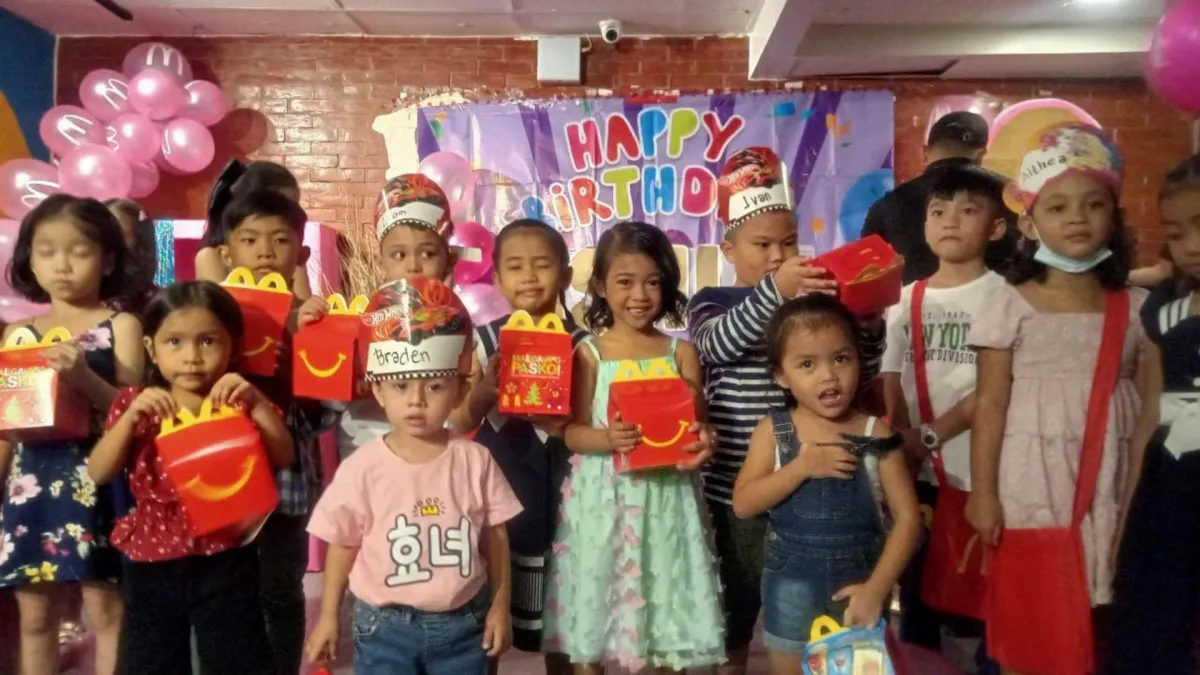
Celebrating every child's joy.

Healthy bodies, brighter futures.

Children helping children grow.

Empowering Youth. Investing in Futures.

Born to be Wealthy Non-Profit Foundation is an organization dedicated to nurturing the potential of children through comprehensive support services aimed at creating a foundation for a prosperous future.
CONTACT INFO
Born To Be Wealthy Foundation
255 S Orange Avenue, Suite 104
Orlando, FL 32801 United States
Federal Tax ID: 99-2079151
Born To Be Wealthy Foundation is a registered 501(c)(3) non-for-profit organization, donations are tax-deductible.
Contact: 1 (347) 427-5507
OUR PROGRAMS

Celebrating every child's joy.

Healthy bodies, brighter futures.

Children helping children grow.


